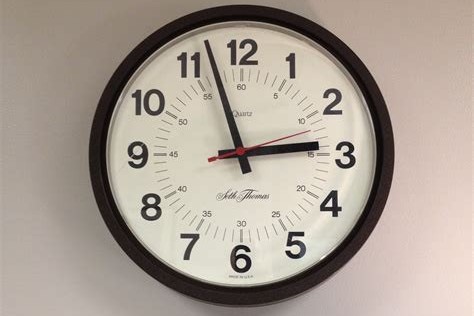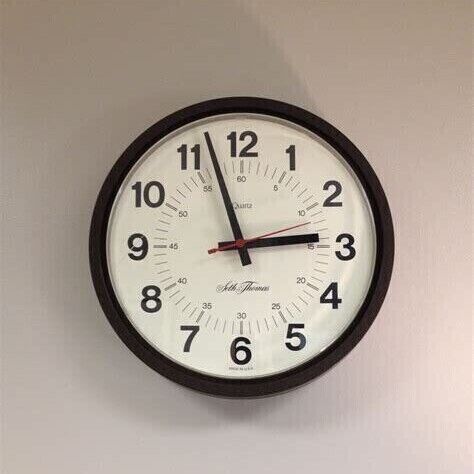
posted 18th September 2022

A debate is not a free flowing, rambling conversation about the world between friends that can go on late into the night, constrained only by what time the bar closes / what time you have to get up in the morning. When and how long you speak in a debate is tightly controlled. A timekeeper scrutinises a clock, banging on the table regularly to let you know how long you have left. So you need to be ruthlessly disciplined in your use of time. Spend too long on a point, and you will not have enough time for the other points; spend too little on a point, and you will not have developed it well enough.
How should you use your time? How can you make the most of that precious five minutes when you are the centre of attention?
Be hyper aware of time throughout your speech. Set a stopwatch on your phone and keep it in your line of vision throughout (having made clear to the chair that you are not using your phone for internet research). Then divide up your time as follows:
First 30 seconds
Outline your case; signpost your three points.
30 seconds - 1 minute
Rebut the previous speech (if you are speaking first, use this time to introduce your partner’s three points).
1 minute - 2 minutes
Present your first point. Say what you’re going to say; say it; say what you’ve just said.
2 minutes - 3 minutes
Present your second point. Say what you’re going to say; say it; say what you’ve just said.
3 minutes - 4 minutes
Present your third point. Say what you’re going to say; say it; say what you’ve just said.
4 minutes to 4 minutes 30 seconds
Recap your three points.
That leaves 30 seconds over, which you should allocate to taking (and responding to) at least one point of information.
You will notice there is a lot of repetition in the above; don’t be afraid of this. As long as you phrase your points slightly differently each time, it will help to fix them in the audience’s (and, crucially, the judge’s) memory. People are more likely to be convinced by something they can remember.
If you are the Whip in a BP debate, speaking last, the above does not apply as you should not be introducing new arguments. Instead, follow this schedule:
0 - 30 seconds
Identify the point of clash and show how your side has won.
30 seconds - 2 minutes 30 seconds
Systematically rebut the other side’s arguments one by one, linking each of them to the point of clash as far as possible.
2 minutes 30 seconds - 4 minutes 30 seconds
Systematically recap your side’s arguments one by one, linking each of them to the point of clash as far as possible.
That leaves 30 seconds to take and respond to points of information.
You should also be ruthlessly disciplined in how you make and respond to points of information. In competitions I run, I have a rule that points of information may not be longer than 15 seconds. Even if a particular competition does not have that rule, this is a good discipline to keep, as it will ensure your points of information are focused and concise. I recommend you keep to the same maximum of 15 seconds in responding to points of information. You must respond, and respond fully, to the point of information; but you need to do so swiftly and concisely, both to quickly reassert your authority over the debate, and to get back to your arguments as soon as possible.
Above all, always use the full time. Speakers who peter out a minute before the end are unlikely to score highly. You should aim to be halfway through your last sentence when the signal for ‘time up’ comes, finishing off that sentence in the fifteen seconds ‘grace period’ you are allowed. Using the full time, presenting all your arguments fully within that time, means your case will be both thorough and concise.
Time in a debate can be an enemy if you use it badly, but a powerful ally if you use it well.





